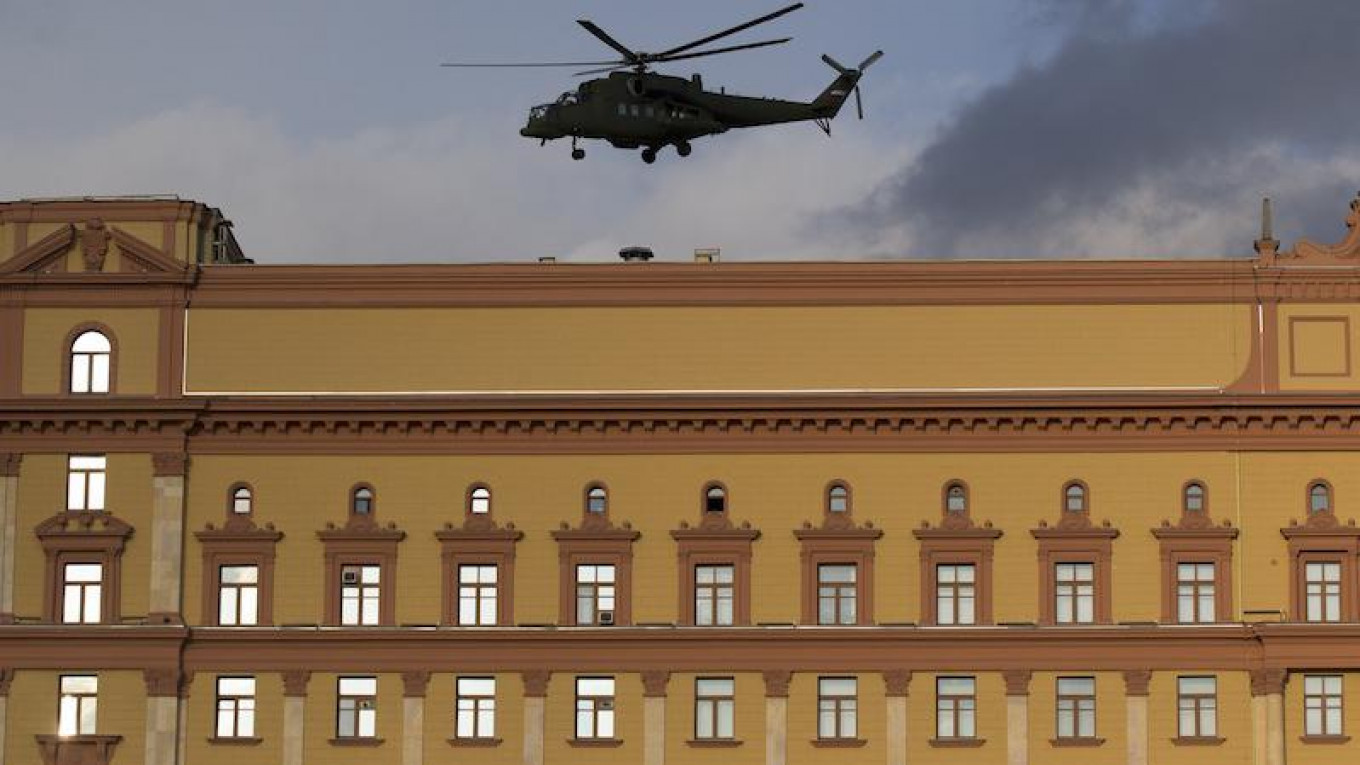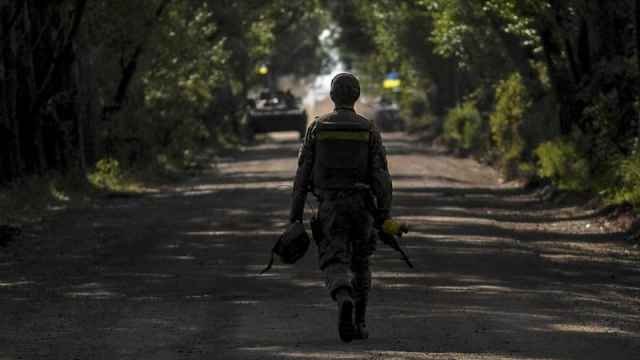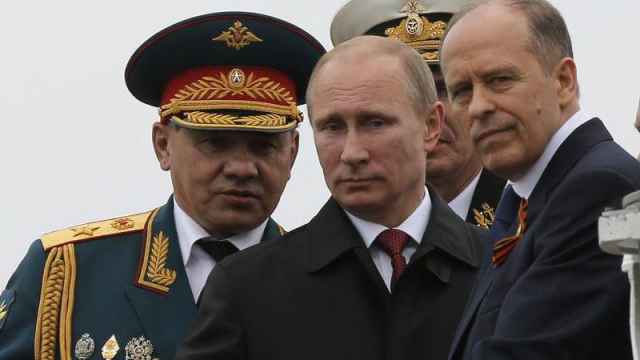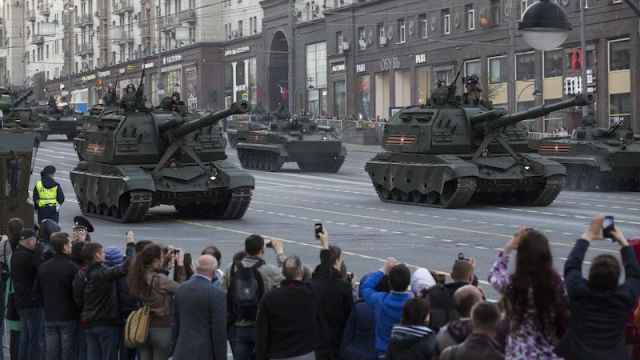Vladimir Putin is both feared and admired for his signature move of creating suspense to keep everybody on their toes. He knows how to make sure his next move is unpredictable. And yet, he is one of the most consistent political actors we know.
Whenever he feels things are not going his way, he jumps at the security issue closest at hand and makes it his next showstopper.
The Federal Security Service (FSB), Russia’s main security agency, reported last week that a shootout occurred between its forces and two groups of Ukrainian “saboteurs,” who had planned terror attacks in Crimea before the September parliamentary elections. Russia said it captured seven men. One FSB employee and one military serviceman were reported to have died in the clashes.
Ukrainian officials repeatedly denied that any such incidents took place at the Crimean border. Yet guerilla-style attacks from the Ukrainian side have happened before and a new episode would not be unimaginable.
Whatever the truth, President Putin has already said that talks about the status of the Donetsk and Luhansk regions, slated for the G20 summit in China next month, would now be “pointless.”
This does not really mean the negotiating process will stop. It means that Moscow has made the first move in the game. Chancellor Angela Merkel and President Francois Hollande, Putin’s partners in the Normandy Format, will now have to coax Moscow into returning to the negotiating table. Putin thus has the advantage of a player who can ask for concessions before the formal conversation even begins.
Most observers agree that the incident was placed in the limelight to raise the stakes before the upcoming negotiations over the Russian-Ukrainian conflict in the Normandy Format. “The Kremlin tactic, as proven by the events in Donbass in 2014-15, is to raise the stakes before negotiations. The main political question now is what is going to happen to the Minsk process. Will Russia walk out or demand new concessions?” the newspaper Vedomosti wrote in an editorial.
Whether any clashes actually happened is irrelevant, said Oleg Kashin, one of the best commentators on Russia’s domestic politics. If Russia did not want to escalate it would have muted the episode. Moscow, on the contrary, decided to highlight it.
And, predictably, the Russian Security Council has already met to discuss additional security measures for Crimea. Russia also announced it would hold naval war games in the Black Sea while Ukraine put its troops on combat alert.
The Kremlin has consistently used acts of terror and smaller incidents that threatened public security as pretexts for announcing and maintaining the de-facto state of emergency Russia has been living under throughout the Putin years.
Arguably, the tragedy that led to the biggest consequences for the Russian political system was the terrible terrorist attack on a school in the North Ossetian town of Beslan in 2004 that left 334 dead, including 186 children. Soon after the attack, Putin announced a ban on all regional elections and allowed armed forces to aid the police in dealing with domestic terrorism. The heads of the Russian regions were, in effect, turned into political appointees rather than elected politicians. The Kremlin reinstated gubernatorial elections in 2012, but designed the electoral process in such a way that only Kremlin-approved candidates could reach the registration stage. Regional elections are held every year, but regional heads remain effective appointees.
In 2007, Putin started to create so-called “emergency laws:" diverse amendments to existing laws regulating the media, internet, security agencies, use of firearms by police, and private citizens’ public behavior, and he has not stopped since. The latest changes, named the “Yarovaya package” and signed into law in July, introduced prison sentences for failure to report a grave crime (a Soviet-era practice) and increased the number of crimes for which Russians as young as 14 years old can be prosecuted. The law obliges network operators to store recordings of the phone calls, images, and messages of their users for half a year.
A small group of civil society activists has protested the new law as repressive, but Russian society in general does not seem to care. The sheer frequency and number of changes create a fuzzy feeling of a loss of control; so many things are banned that one better steer clear of anything that sounds problematic.
This is exactly the effect the political managers intend to project. The dangers are multiple and complex, so one has to trust the authorities and give them whatever they ask for. In a society that has little experience resisting state encroachment on individual freedoms, this mechanism works like a charm.
Putin is a proven master at manipulating emergencies — real or imagined — to reach his political ends. Starting from his very first days in power, he has been using the threat of terrorism and broadly defined extremism to re-centralize Russia’s political system. For 16 years he has been able to keep the country in a near-constant state of alarm.
What has changed is the scale. Moscow has been demonstrating lately that it can keep most of its immediate region and its partners and opponents in a state of alarm. Putin has taught everybody in Russia that security takes precedence over political, legal, and marketplace freedoms. He is now taking his message to a wider audience.
Maxim Trudolyubov is a Senior Fellow with the Kennan Institute and editor-at-large with Vedomosti.
This piece was originally published on The Russia File: A Kennan Institute Blog.
A Message from The Moscow Times:
Dear readers,
We are facing unprecedented challenges. Russia's Prosecutor General's Office has designated The Moscow Times as an "undesirable" organization, criminalizing our work and putting our staff at risk of prosecution. This follows our earlier unjust labeling as a "foreign agent."
These actions are direct attempts to silence independent journalism in Russia. The authorities claim our work "discredits the decisions of the Russian leadership." We see things differently: we strive to provide accurate, unbiased reporting on Russia.
We, the journalists of The Moscow Times, refuse to be silenced. But to continue our work, we need your help.
Your support, no matter how small, makes a world of difference. If you can, please support us monthly starting from just $2. It's quick to set up, and every contribution makes a significant impact.
By supporting The Moscow Times, you're defending open, independent journalism in the face of repression. Thank you for standing with us.
Remind me later.







